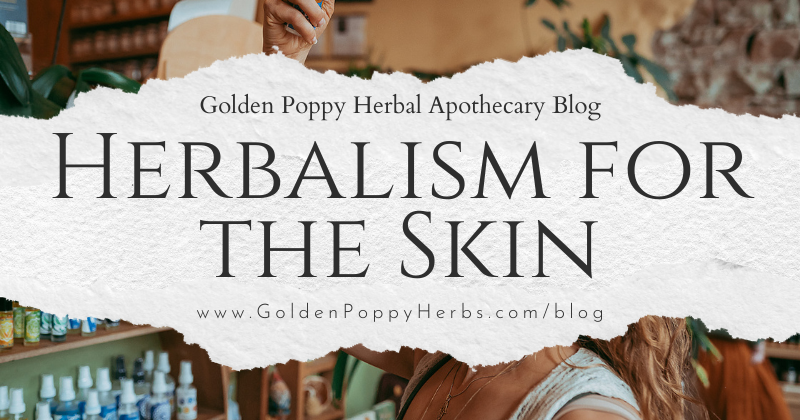 Did you know that our skin is actually our largest organ on our body? This may seem strange, as we typically consider organs to be those of smooth muscle inside of our bodies in charge of functions. For example, we tend to typically think of our heart, which moves blood around our body, or our lungs, which are responsible for our breath, but it’s true, the skin is also an organ, and an extremely important one at that! The skin is protective, serving as our first line of defense against the outside world. Consisting of three layers known as the epidermis, the dermis, and the hypodermis, the skin serves quite a variety of functions that help to support our state of homeostasis. This includes sensation, or helping us to feel such things as temperature or pressure, management of fluid loss from the body, regulation of body temperature, defense against pathogens, and even is responsible for initiation of the process that helps our bodies to produce Vitamin D!
Did you know that our skin is actually our largest organ on our body? This may seem strange, as we typically consider organs to be those of smooth muscle inside of our bodies in charge of functions. For example, we tend to typically think of our heart, which moves blood around our body, or our lungs, which are responsible for our breath, but it’s true, the skin is also an organ, and an extremely important one at that! The skin is protective, serving as our first line of defense against the outside world. Consisting of three layers known as the epidermis, the dermis, and the hypodermis, the skin serves quite a variety of functions that help to support our state of homeostasis. This includes sensation, or helping us to feel such things as temperature or pressure, management of fluid loss from the body, regulation of body temperature, defense against pathogens, and even is responsible for initiation of the process that helps our bodies to produce Vitamin D! 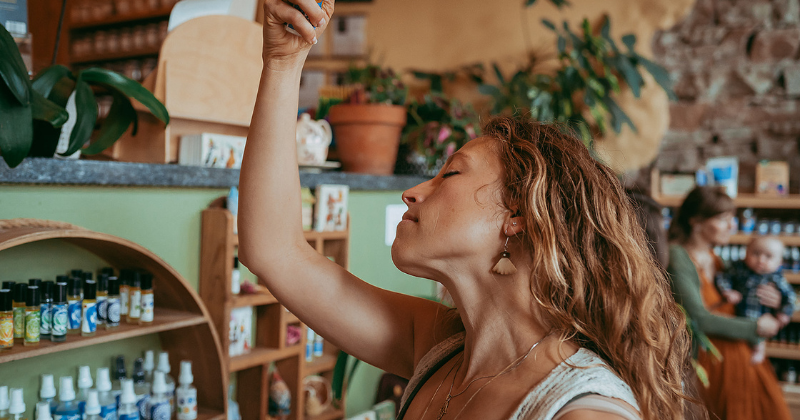 In the world we exist in today, we come up against environmental toxins quite frequently. And here in Colorado, due to our altitude, we are more exposed to ultraviolet (UV) rays that can cause damage to our skin. This is because, according to the World Health organization, as we experience an increase in altitude, there is less atmosphere - which can be thought of as a protective blanket for the earth - able to absorb the UV radiation. Not to mention, in northern Colorado in particular, we are living in a relatively dry and arid climate, with a substantial amount of wind that occurs regularly. So needless to say, our skin is working hard for us! Nourishing and nurturing our skin is not only important to maintain our health, but is such a loving act of self care. Working with herbs is an incredible and natural way to care for our skin as they are most often gentle and there are a variety of ways they can offer support! After a long winter, we are so ready to jump into the throws of the warm weather that awaits us, and so we are excited to have you join us in this month’s overview on herbalism for our skin!
In the world we exist in today, we come up against environmental toxins quite frequently. And here in Colorado, due to our altitude, we are more exposed to ultraviolet (UV) rays that can cause damage to our skin. This is because, according to the World Health organization, as we experience an increase in altitude, there is less atmosphere - which can be thought of as a protective blanket for the earth - able to absorb the UV radiation. Not to mention, in northern Colorado in particular, we are living in a relatively dry and arid climate, with a substantial amount of wind that occurs regularly. So needless to say, our skin is working hard for us! Nourishing and nurturing our skin is not only important to maintain our health, but is such a loving act of self care. Working with herbs is an incredible and natural way to care for our skin as they are most often gentle and there are a variety of ways they can offer support! After a long winter, we are so ready to jump into the throws of the warm weather that awaits us, and so we are excited to have you join us in this month’s overview on herbalism for our skin!
The Beautiful World of Body Oiling
As you well know from reading posts on this blog, we love how co-creating with the plants not only cultivates a stronger connection with our natural world, but also to our ancestors. The reason for this is that while we come from diverse cultures and lineages, we can all trace our ancestry back to a time in which humans lived in close communion with the land, and it is in this sacred space that we can find commonality. Working with herbal body oils is a practice that can help us tap into the ways of our ancient predecessors, for it is a practice that has been enjoyed and revered for millennia. Matter of factly, Kami McBride, herbalist and author particularly known for her teachings and use of herbal oils, states that, “pre-dating the written word and referenced in many of the earliest medical texts, [herbal body oiling is] one of the oldest known practices for supporting full-body wellness.” Use of herbal body oils is also a very accessible way to work with herbs. This is due to the ease of use, and it is something that is simple to create on your own, even with little prior experience. While there are several methods in which to create an herbal oil, at its foundation, it is simply the act of infusing a carrier oil that is safe and able to be absorbed by the skin (such as olive oil or jojoba oil) with herbs of your choice that benefit the skin. A simple, yet effective way to create an herbal infusion is to fill a jar with dry herbs, cover in the oil, stir, cover, and let steep for a moon cycle, checking it daily to make sure the oil has not spilled over the lid.
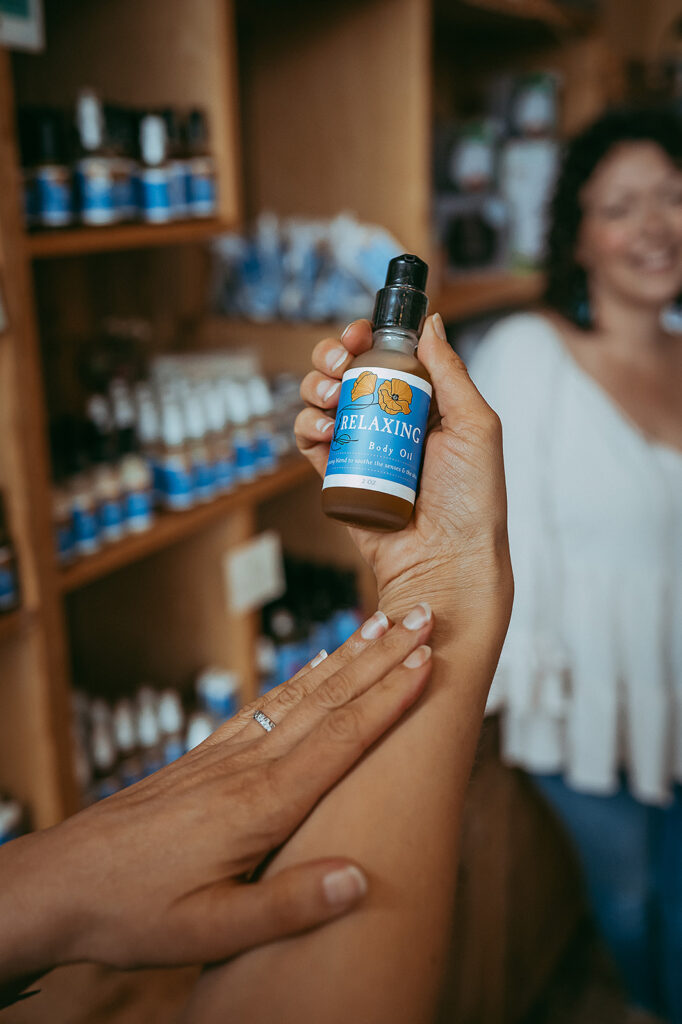 Relaxing Body Oil[/caption] Herbal body oils can be used topically all over the body, (and is especially juicy after a nice hot shower or bath!) and is a great way to moisturize the skin. Additionally, herbal body oils can be formulated for desired effects. For example, you might want to create a lavender body oil to help alleviate feelings of stress and invoke feelings of calm and relaxation before bed. Infusing an oil with rose or damiana can create a delicious and sensual massage oil. You can even create oils to help when you are feeling unwell, such as infusing a peppermint oil to rub on your stomach if you are experiencing nausea. Kami McBride also points out that, “body oiling may feel like luxurious self-care, but in these overstimulating times, it’s one of the wisest investments we can make in our health. Whether processing the stress of an intense day or creating a nighttime ritual to invite deeper sleep, body oiling is a simple yet effective way to lay the groundwork for restoration and well-being.”
Relaxing Body Oil[/caption] Herbal body oils can be used topically all over the body, (and is especially juicy after a nice hot shower or bath!) and is a great way to moisturize the skin. Additionally, herbal body oils can be formulated for desired effects. For example, you might want to create a lavender body oil to help alleviate feelings of stress and invoke feelings of calm and relaxation before bed. Infusing an oil with rose or damiana can create a delicious and sensual massage oil. You can even create oils to help when you are feeling unwell, such as infusing a peppermint oil to rub on your stomach if you are experiencing nausea. Kami McBride also points out that, “body oiling may feel like luxurious self-care, but in these overstimulating times, it’s one of the wisest investments we can make in our health. Whether processing the stress of an intense day or creating a nighttime ritual to invite deeper sleep, body oiling is a simple yet effective way to lay the groundwork for restoration and well-being.”
Working with Herbs for Sun Protection
Perhaps you have seen that spoof video that local Fort Collins content creator Dude Dad made that jokingly references “Colorado Moms” and the common quote amongst them where they state that “sunscreen is important because we are closer to the sun!” While this makes us giggle, it’s a cliche that is rooted in truth! As aforementioned in this post, increased altitude and UV exposure are linked as with every 1000 meters in altitude, UV levels increase by 10 percent. It is extremely important for us to have exposure to the sun, for it not only helps with increasing our mood and alleviating feelings of depression, but it is also vital for our body’s production of Vitamin D. However, in excess, exposure to the sun can be damaging, resulting in such issues as DNA mutation, photoaging, or burns.
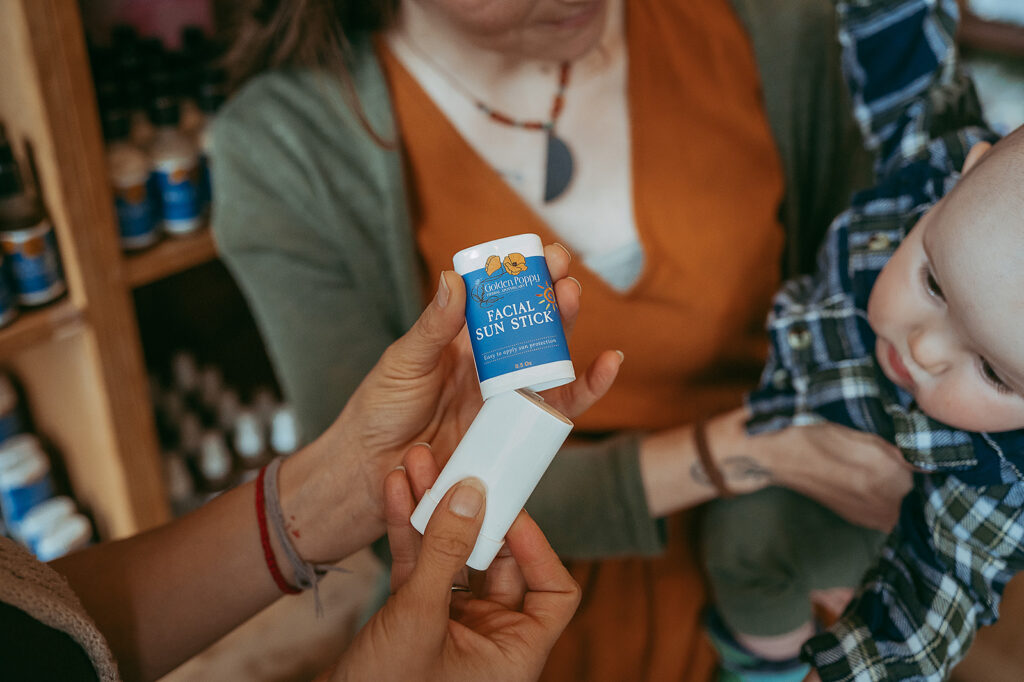 Facial Sun Stick[/caption] Amazingly, there are herbs that have been found to have properties that are protective against UV damage for our skin. One that is particularly well known is St. John’s Wort. This gorgeous herb, which in appearance embodies solar energy with its bright yellow flowers, has a substance that is released when the flowers are crushed that is deep red in color. This substance is known as hypericin, and as mentioned by herbalist Rosalee de la Forêt, has been found in modern clinical trials to have the ability to protect the skin from sunburn. If you unfortunately find yourself victim to a sunburn, herbs can also provide support for alleviating pain and helping expedite the healing process for your skin as well. Some herbs that can be utilized in this situation include Aloe Vera (try freezing it for extra relief and cooling!), Calendula, or Lavender. We also offer our After Sun Soother Spray and our Skin Repairing Body Oil for these situations.
Facial Sun Stick[/caption] Amazingly, there are herbs that have been found to have properties that are protective against UV damage for our skin. One that is particularly well known is St. John’s Wort. This gorgeous herb, which in appearance embodies solar energy with its bright yellow flowers, has a substance that is released when the flowers are crushed that is deep red in color. This substance is known as hypericin, and as mentioned by herbalist Rosalee de la Forêt, has been found in modern clinical trials to have the ability to protect the skin from sunburn. If you unfortunately find yourself victim to a sunburn, herbs can also provide support for alleviating pain and helping expedite the healing process for your skin as well. Some herbs that can be utilized in this situation include Aloe Vera (try freezing it for extra relief and cooling!), Calendula, or Lavender. We also offer our After Sun Soother Spray and our Skin Repairing Body Oil for these situations.
Skin Resroration
Lastly, while herbs can be used proactively to help nourish the skin, as well as serve as a protective aid for harsher environmental conditions that impact our skin, they can also offer incredible support to restore and heal skin that has been damaged or wounded. There are several remedies for skin conditions, whether you are experiencing rashes or irritated skin from situations such as eczema, have chronically dry or oily skin conditions, or are simply wanting to heal a cut or abrasion you have in your skin. Herbs can be used as a simple infused oil, as a poultice or compress (a simple remedy where fresh herbs are ground or mixed with a substance such as honey and applied directly to the skin, or steeped as a strong tea and applied with a cloth), or as a salve or cream. For dry or irritated skin, call upon the soothing, demulcent support of herbs such as Marshmallow, Borage, or Oats. Herbs that are calming to the nervous system can also help to have a calming effect on the skin particularly when it is inflamed such as, Chamomile, Lavender, or Peppermint
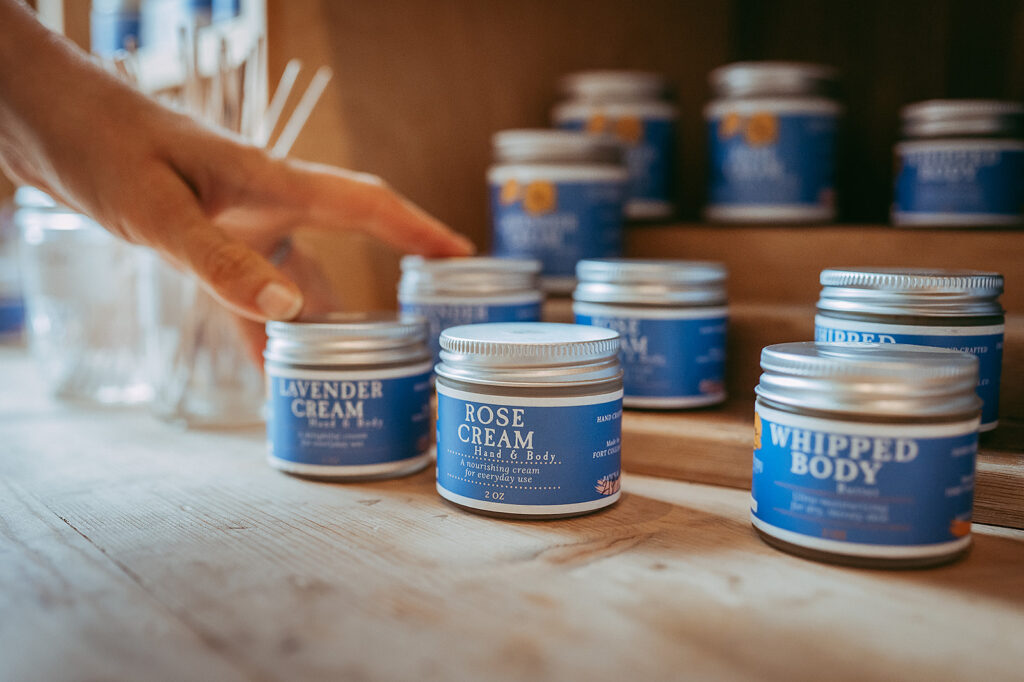 Herbal Infused Body Creams[/caption] For damage such as minor cuts or abrasions, call upon the healing magic of herbs such as Comfrey, Calendula, or Yarrow. If using any of these herbs, ensure that the wound is cleaned thoroughly to not only avoid further infection, but because these herbs work quickly, and it is important that no debris, bacteria, or foreign bodies get closed in by the healing skin. For issues such as stings or bug bites, herbs such as Plantain or Peppermint can offer immense and often immediate relief. For skin that is oily or where there is a desired tightening effect, astringent herbs can be supportive. Call upon herbs such as Lady’s Mantle, Rose, and Witch Hazel! We wish you such beautiful days of sunshine and restoration that lie ahead. And may we smile with deep gratitude for the herbs that are always here to nourish and support us, helping us find balance and healing. We wish you many May blessings and will see you in June to celebrate the Summer Solstice! Sources:
Herbal Infused Body Creams[/caption] For damage such as minor cuts or abrasions, call upon the healing magic of herbs such as Comfrey, Calendula, or Yarrow. If using any of these herbs, ensure that the wound is cleaned thoroughly to not only avoid further infection, but because these herbs work quickly, and it is important that no debris, bacteria, or foreign bodies get closed in by the healing skin. For issues such as stings or bug bites, herbs such as Plantain or Peppermint can offer immense and often immediate relief. For skin that is oily or where there is a desired tightening effect, astringent herbs can be supportive. Call upon herbs such as Lady’s Mantle, Rose, and Witch Hazel! We wish you such beautiful days of sunshine and restoration that lie ahead. And may we smile with deep gratitude for the herbs that are always here to nourish and support us, helping us find balance and healing. We wish you many May blessings and will see you in June to celebrate the Summer Solstice! Sources:
- de la Forêt, Rosalee. “5 Herbs to Protect Your Skin from UV Damage.” Annmarie Gianni. 10 May 2021. Retrieved from: https://www.annmariegianni.com/5-herbs-to-protect-your-skin-from-uv-damage/
- Lopez-Ojeda, Wilfredo, et al. “Anatomy, Skin (Integument).” National Library of Medicine. 17 October 2022. Retrieved from: https://www.ncbi.nlm.nih.gov/books/NBK441980/
- McBride, Kami. “5 Benefits of Body Oiling.” Living Awareness: Herbal Remedies and Healthy Living. 2023. Retrieved from: https://kamimcbride.com/5-benefits-of-body-oiling/
- Stromberg, Joseph. “Can Natural Herbs Protect Your Skin from the Sun?” Smithsonian Magazine. 1 August 2012. Retrieved from: https://www.smithsonianmag.com/science-nature/can-natural-herbs-protect-your-skin-from-the-sun-11475652/
- World Health Organization. “Radiation: Ultraviolet (UV) radiation.” World Health Organization. 9 March 2016. Retrieved from: https://www.who.int/news-room/questions-and-answers/item/radiation-ultraviolet-(uv)



